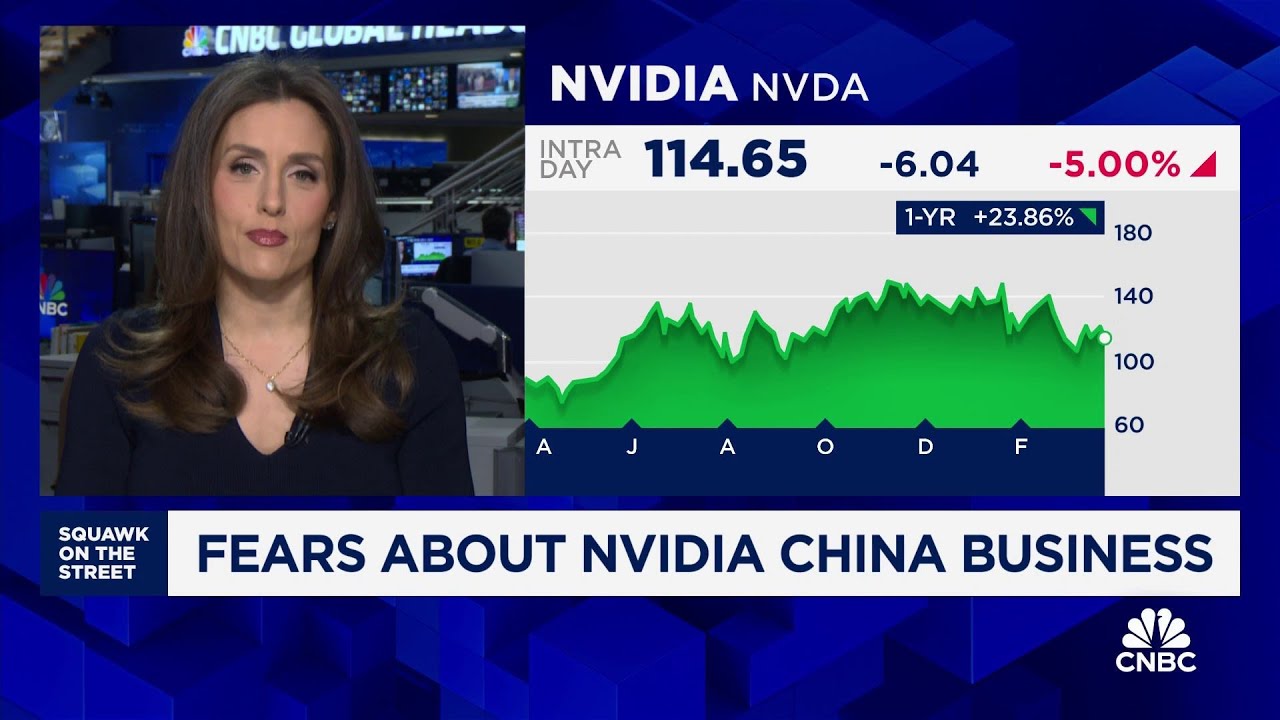The video highlights Nvidia’s challenges in China due to new energy efficiency regulations that could block its H20 chips, potentially impacting 13% of its projected revenues for 2025 and leading to a decline in stock prices. In response, Nvidia is considering redesigning its chips for better energy efficiency while facing increasing competition from domestic rivals like Huawei, all under the scrutiny of geopolitical tensions as CEO Jensen Wang prepares to meet with Chinese officials.
The video discusses the challenges Nvidia is facing in the Chinese market due to new energy efficiency regulations that could significantly impact its business. These regulations threaten to block Nvidia’s H20 chips from being sold in China, which could jeopardize up to 13% of the company’s projected revenues for 2025. This situation has led to a decline in Nvidia’s stock price, reflecting investor concerns about the company’s future in one of the world’s most competitive tech markets.
In response to these regulatory pressures, Nvidia is considering radical redesigns of its chips to enhance energy efficiency. The company recognizes the need to adapt to the changing landscape in order to maintain its foothold in China. Industry sources indicate that Nvidia is already working on developing a new chip specifically tailored for the Chinese market, which would feature improved memory and energy efficiency.
Despite these challenges, analysts from Wells Fargo express confidence in Nvidia’s ability to navigate geopolitical issues, citing the company’s history of finding solutions in difficult situations. They believe that it would be unwise to underestimate Nvidia’s capacity to adapt and overcome the obstacles posed by the new regulations.
A significant concern for Nvidia is the rise of domestic competitors, particularly Huawei, which is positioning itself as a potential alternative for Chinese consumers. This development highlights China’s rapidly advancing technological capabilities and the increasing competition Nvidia faces in the region. The company must not only contend with regulatory hurdles but also with the threat of losing market share to local rivals.
At the center of this complex situation is Nvidia’s CEO, Jensen Wang, who is preparing to engage with Chinese officials. This meeting is not merely a business negotiation; it represents a delicate diplomatic effort that tests the limits of US-China tech relations. The stakes are high, as Nvidia aims to protect approximately $17 billion in market value while navigating the intricate geopolitical landscape and striving to maintain its technological leadership.
